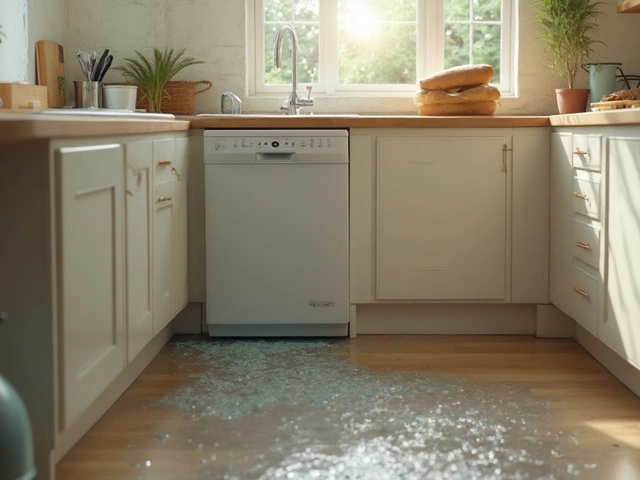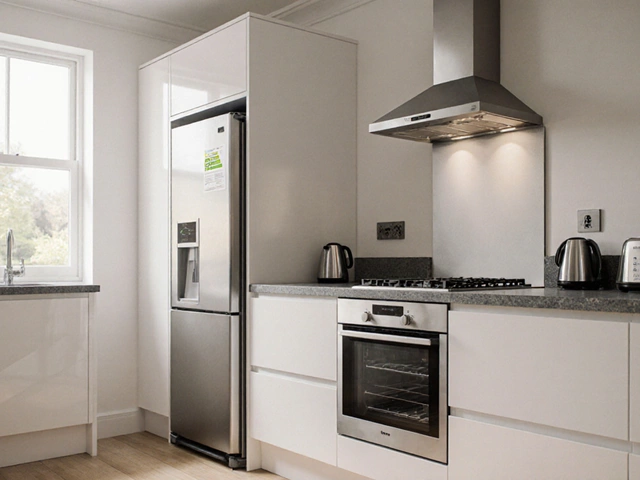Ever wonder why your fridge hums but never gets cold, or why the heat pump can’t seem to push warm air around the house? You’re not alone. Most of us run into these hiccups, but with a few simple homeowner tips you can tackle many problems yourself and save a call‑out fee.
First off, a little routine goes a long way. The majority of appliance failures start with ignored maintenance – a clogged filter, a dirty element, or a missed annual service. By adding a quick check‑list to your monthly chores you’ll spot trouble before it becomes an expensive repair.
Heat pumps are great for keeping the house comfortable, but they need a clean outdoor unit and a clear airflow path. If the heat pump isn’t blowing warm air, make sure the filter isn’t stuffed with dust and that the fan spins freely. A simple power‑cycle (turn it off for a few minutes, then back on) can reset internal sensors and often restores normal operation.
Electric ovens that won’t heat are usually down to a faulty heating element or a blown fuse. Before you call an engineer, unplug the oven, remove the element, and look for visible breaks or black spots. Swapping the element yourself is a straightforward job – just note the wattage and make sure the replacement matches.
Dishwashers that don’t clean properly often have a clogged spray arm or a dirty filter. Pull the lower rack out, take out the filter, rinse it under running water, and spin the spray arm to free any trapped debris.
For water heaters, a cold shower can mean a stuck thermostat or sediment build‑up. Flushing the tank once a year clears out mineral deposits that choke heating efficiency. Just attach a garden hose to the drain valve, open a hot‑water tap, and let the water run until it’s clear.
DIY is fantastic, but some jobs are best left to trained technicians. If you notice gas odors around a boiler, a persistent leak from a fridge, or an electrical spark when you touch a cooker, stop immediately and call a qualified repair service. Ignoring safety warnings can lead to bigger damage or even personal injury.
Another red flag is the age of the appliance. A washing machine that’s been running for more than 10‑12 years will start to lose efficiency, and parts become harder to find. If repair costs approach half the price of a new unit, it’s probably smarter to replace.
Lastly, keep track of service histories. A quick note in your phone about when you last serviced a heat pump or flushed a water heater helps you stay on schedule and gives a professional a clear picture of what’s been done.
Putting these homeowner tips into practice means fewer surprise breakdowns and more confidence in handling everyday hiccups. Grab a notebook, set a reminder for quarterly checks, and you’ll keep your appliances humming for years to come.

Boiler servicing is an essential aspect of home maintenance that ensures safety and efficiency. While it might seem tempting for homeowners to attempt servicing their own boilers, it's crucial to understand the complexities and risks involved. This article explores whether boiler maintenance can be a DIY project, providing key tips and insights. It offers guidance on what aspects are safe to handle on your own and when to call in a professional.

Fixing an electric stove might seem daunting, but many common issues are surprisingly manageable with a bit of know-how. From understanding why the burners aren't heating to recognizing if a problem needs professional attention, this article sheds light on various aspects of electric stove repair. Whether you're dealing with strange noises, faulty wiring, or a completely inoperative oven, we explore what’s usually repairable and what might require a replacement. With practical tips, learn to troubleshoot and potentially save on costly service calls.

Wondering if you can still use your oven with a broken heating element? This article breaks down what actually happens when the heating element fails and what your options are. Learn about safety concerns, possible workarounds, and when it’s smarter just to fix it instead of limping along. Get tips on recognizing a bad element and ideas for a cheap, fast repair. Find out what really works and what won’t, straight from someone who’s fixed more than a few ovens themselves.

Dishwashers are a staple in modern kitchens, but they often face common issues. So, what's the most frequent problem users encounter? This article dives into typical faults like drainage issues and proposes practical solutions. Understand why your dishwasher might not clean effectively and learn simple DIY fixes to keep it in top shape. By addressing these issues, you'll ensure your dishwasher runs smoothly for years to come.

When your electric hob stops working, it's more than just a minor inconvenience—cooking essentials go awry, family meal plans are disrupted. Understanding some common causes and fixes is crucial before calling in the big guns or rushing to buy a new unit. From circuit issues, faulty sensors, and even user errors, many problems have straightforward solutions. This guide walks you through troubleshooting steps and shares tips to keep your hob cooking strong.

Learn what qualifies as an appliance in UK homes, including major vs. small appliances, what doesn't count, and why the distinction matters for repairs and insurance. Clear, practical guide for homeowners.